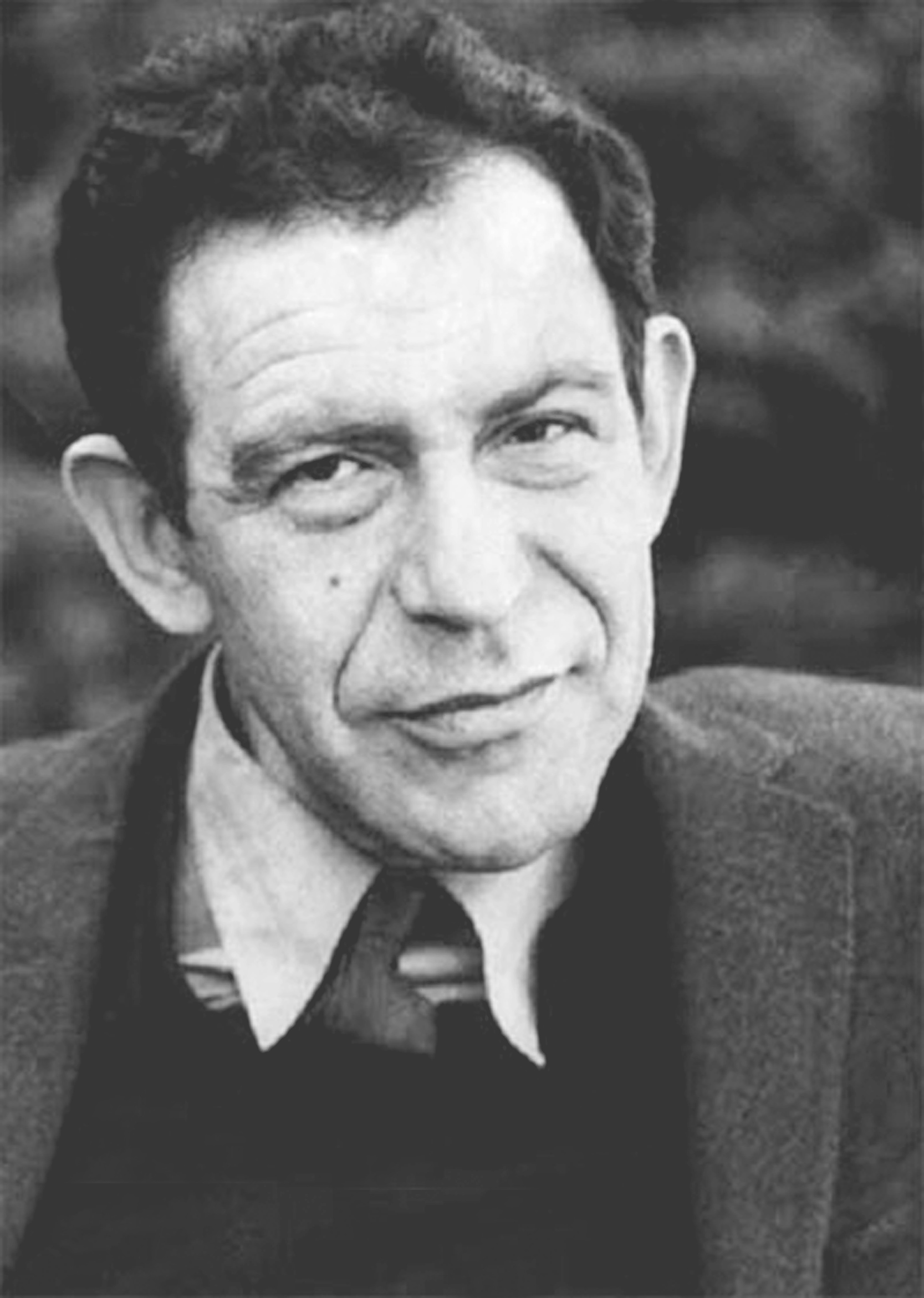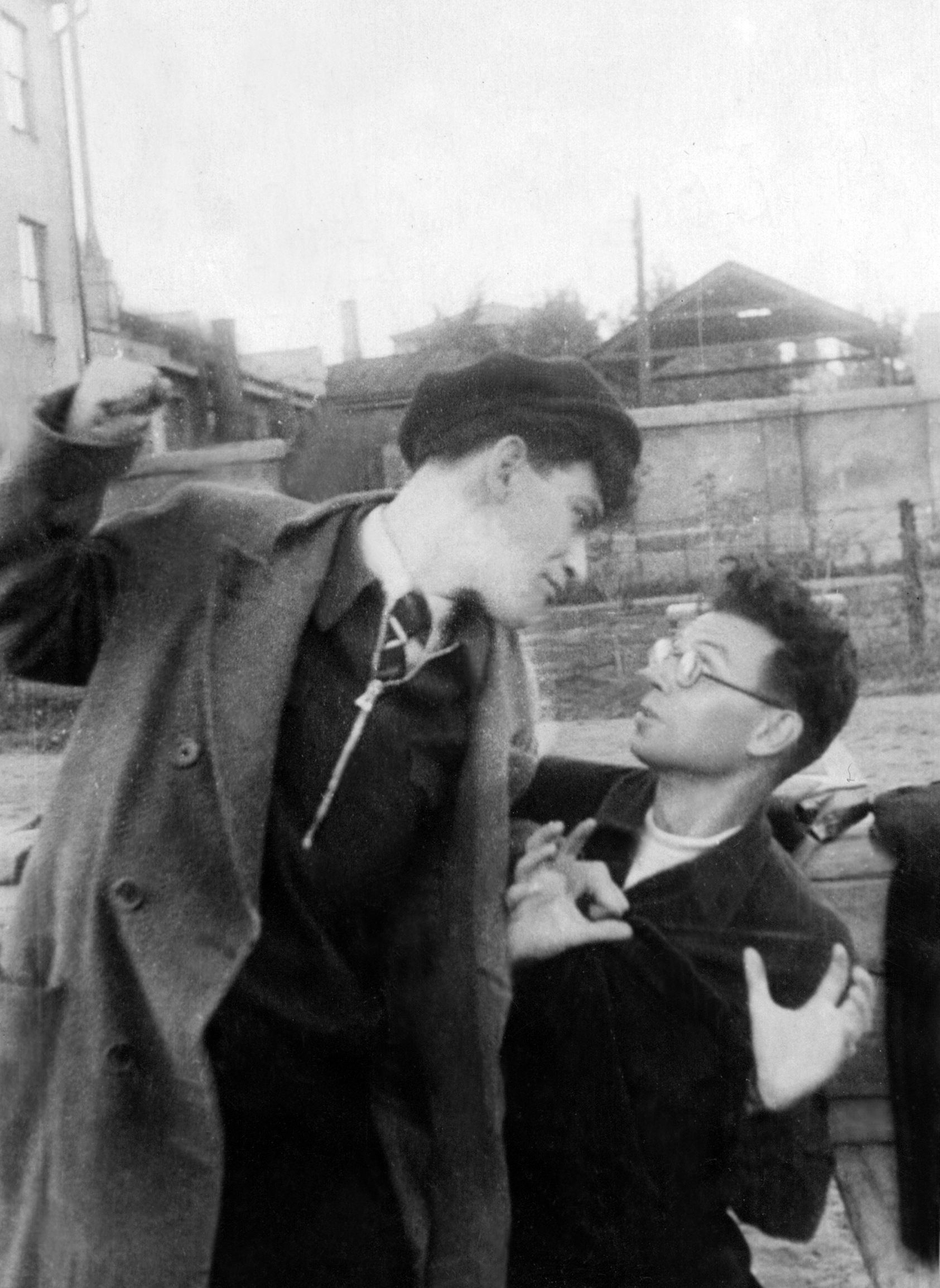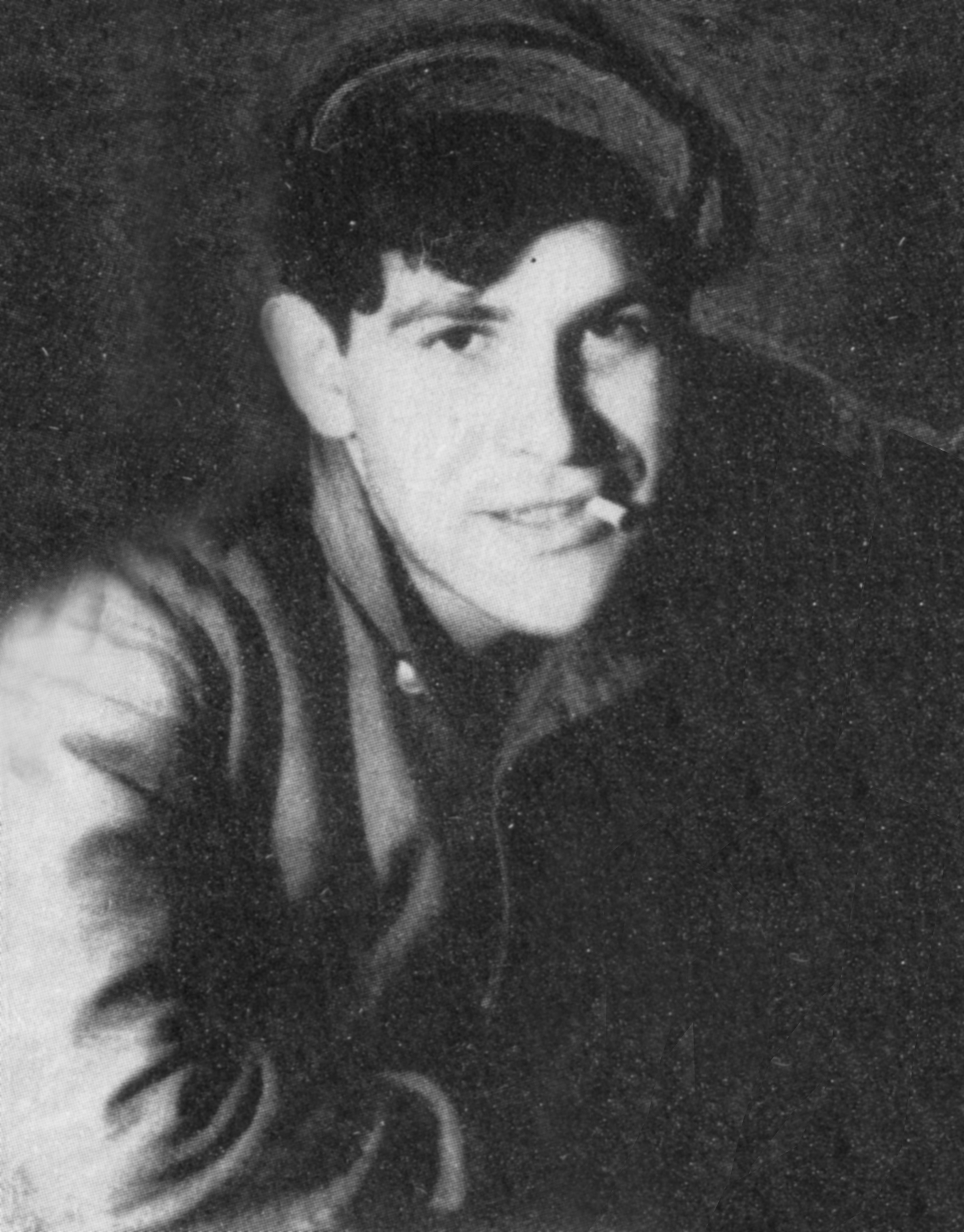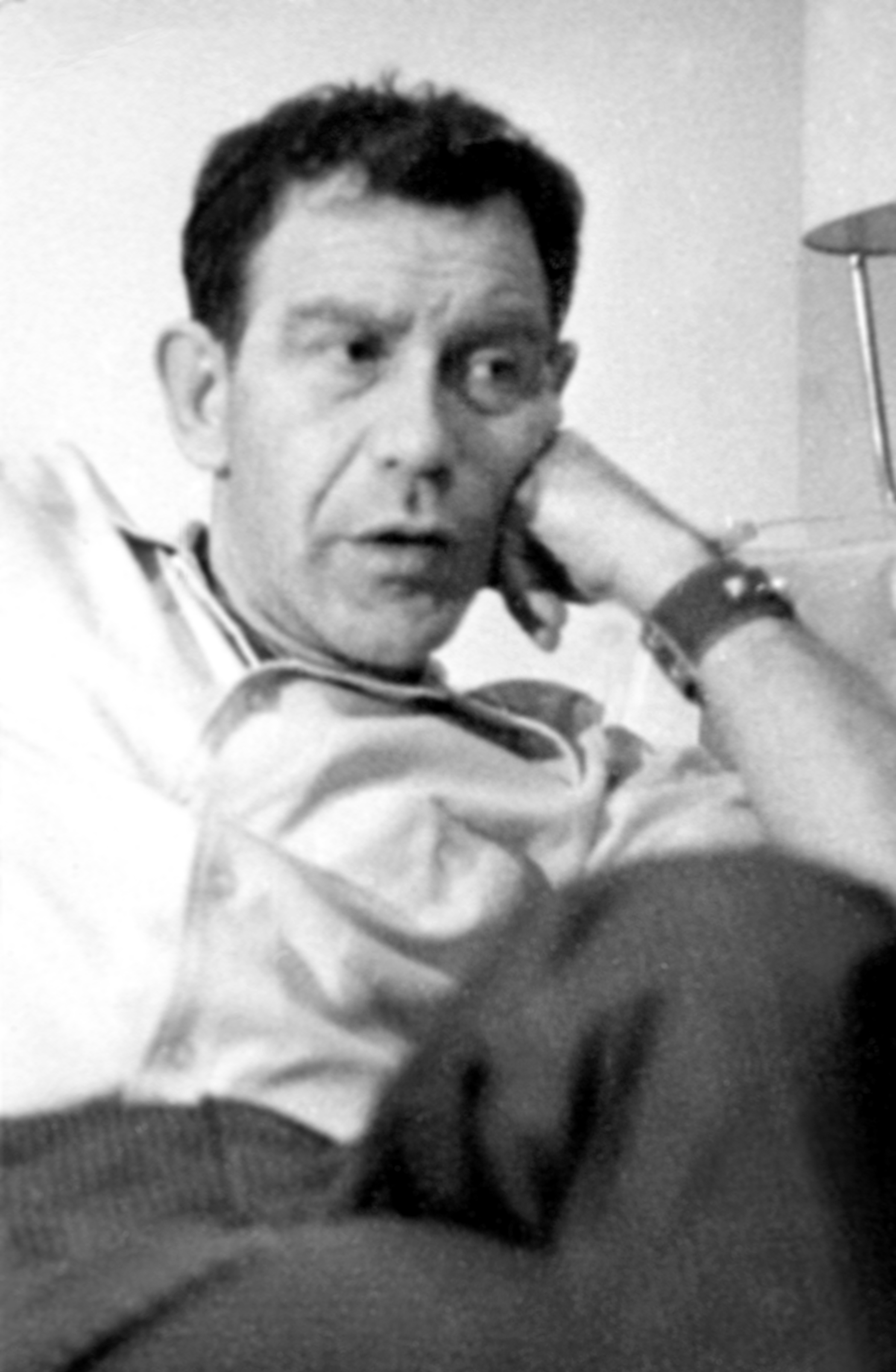
Daniel’s father was the well-known Jewish writer and playwright M. M. Meerovich, who published under the pseudonym Mark Daniel. The father’s pseudonym became the son’s official surname.
From 1943–1944, he served on the front; he was demobilized after a severe injury. From 1946–1947, he was a student in the Faculty of Philology at Kharkiv University, then transferred to the Moscow Regional Pedagogical Institute, from which he graduated in 1951. At the same time, he married his Kharkiv acquaintance, Larisa BOGORAZ. For several years, he worked as a teacher in the Kaluga Oblast; in 1955, upon returning to Moscow, he shifted from teaching to professional literary pursuits (leaving teaching for good in 1956). Daniel chose poetic translation as his primary literary profession, and by 1965, he had gained a degree of renown as a translator into Russian of the poetry of the peoples of the Caucasus, as well as the verse of Ukrainian, Czech, and German poets. At the same time, he tried his hand at fiction. His historical novella “Begstvo” (“The Escape”) (a biography of Ivan Sveshnikov, a little-known figure from the Catherinian era, a self-taught serf who became a renowned polyglot) was accepted for publication by Detgiz. The book was printed in September 1965, just before the author's arrest, but never went on sale: the entire print run was destroyed. Another of Daniel’s works of fiction, the short story “V raionnom tsentre” (“In a District Center”), written in the genre of satirical fantasy, was not originally intended for publication (the story’s protagonist is a district committee secretary who periodically turns into a cat) and was known only within the author’s circle of friends.
In 1956, Daniel learned that his close friend, the literary scholar Andrei SINYAVSKY, who also wrote fiction, was secretly smuggling some of his works to the West. This new opportunity to be published while bypassing censorship captivated Daniel, and following his friend's lead, he became an “underground” writer. The two short stories and two novellas he smuggled abroad between 1958 and 1963 were signed with the pseudonym Nikolai Arzhak, which Daniel had borrowed from criminal folklore.
Elements of “fantastic realism,” a creative method devised by SINYAVSKY, are also present in some of Arzhak’s works. For instance, the plot of the novella “Govorit Moskva” (“This Is Moscow Speaking”) is a story about the Soviet government declaring a “Public Murder Day” in the country; the protagonist of the humorous short story “Chelovek iz MINAPA” (“The Man from MINAP”) is a Komsomol member who learns to control the sex of his children through willpower. However, the main thing in Arzhak’s works is not the execution of a particular literary project but the recurring theme of “guilt” and “responsibility.” In the short story “Ruki” (“Hands,” 1958), written from the perspective of a former executioner, it is a specific punishment for a specific (though unrecognized by the protagonist) guilt: the narrator, who carried out death sentences for the Cheka, finds his hands beginning to tremble. In his later works, the question of “personal guilt” and “retribution for one's actions” transforms into the problem of “personal responsibility for collective guilt.” The heroes of Arzhak’s novellas acknowledge their guilt not for their own actions but for the universal civic passivity, cowardice, and self-righteousness for which they recognize their own responsibility. In the novella “Govorit Moskva” (1959), the protagonist symbolically accepts this responsibility by taking to the city streets on “Public Murder Day.” In the novella “Iskupleniye” (“Atonement,” 1963), the theme of civic responsibility takes on a tragic tone. The protagonist, an intellectual of the “Thaw” era, is falsely accused of having informed on his acquaintances to the MGB during the years of Stalinist terror. Subjected to social ostracism, he comes to realize that Stalinism was not just the work of criminals at the head of the state but also the result of universal passivity; he accepts this collective guilt upon himself and, amid the complete indifference of those around him, collapses under its weight and descends into madness.
However, in any case, civic responsibility remains for the author and his heroes not so much a public virtue as the only possible way to overcome total unfreedom and the hopeless disunity of people.
The works of Nikolai Arzhak were published both in the original language—by Western Russian-language publishing houses—and in translation; they were broadcast several times by Western radio stations with programming for the USSR, and three of his books were released between 1962 and 1964. However, these works did not win such widespread fame as the fantastic short stories and novellas of Abram Tertz (the pseudonym of A. SINYAVSKY), and until the autumn of 1965, the name Arzhak remained little known.
For several years, state security searched for both authors who were secretly publishing abroad. In September 1965, they were arrested.
This arrest, which turned out to be one of the first actions of the new, post-Khrushchev leadership in the sphere of “cultural policy,” caused considerable alarm among the liberal creative intelligentsia. Perhaps it was precisely to dispel this alarm that the Politburo decided to conduct a “show” trial of the writers, covering it extensively in the press so that it would be clear to everyone that the charges brought against Daniel and SINYAVSKY were not fabricated—they had indeed published their works in the West and had done so secretly, under pseudonyms. However, the authorities' logic was not accepted by the literary community, which continued to express doubts, including publicly, as to whether this was sufficient grounds for criminal prosecution; and when articles appeared in the Soviet press in January denouncing the “renegades” and “literary turncoats,” public sympathy shifted definitively to the arrested writers. As for the opposition-minded circles of creative youth, they had already openly expressed their attitude toward the upcoming trial with an unprecedented event—the “Glasnost Meeting” (December 5, 1965) in Pushkin Square. This date is considered the beginning of the human rights movement in the USSR.
The case against the two writers, charged with “anti-Soviet propaganda,” was heard in the Supreme Court of the RSFSR from February 10 to 14, 1966. Daniel, like SINYAVSKY, refused to admit his guilt: “They tell me: you slandered the people, the country, and the government with your monstrous fiction about the Public Murder Day. I answer: it could have been so, if one recalls the crimes of the era of the cult of personality; they are far more terrible than anything that I or SINYAVSKY have written” (from Daniel's final statement at the trial). At the same time, he expressed “regret” in the event that his works were used in the West for anti-Soviet purposes (later, while already in the labor camp, in an open letter to “Izvestia,” he renounced these “regrets” and stated that the trial had caused the Soviet Union far more damage than any literary works could have). The court found Daniel less culpable than SINYAVSKY and sentenced him to five years in labor camps (SINYAVSKY received 7 years). The trial was accompanied by a massive campaign in the Soviet press to expose the “slanderers.”
The trial and sentence provoked a wave of indignation throughout the world, and the Soviet intelligentsia responded to the “Sinyavsky-Daniel affair” with numerous petitions and letters of protest. The 1966 petition campaign differed from the similar 1964 campaign in defense of BRODSKY not only in its greater scale but also in its significantly greater degree of openness: letters, formally addressed to Soviet state and party bodies or to the press, became part of Samizdat. A significant portion of these responses, collected by Aleksandr GINZBURG, formed the basis of a documentary collection that, when published in the West, was given the title “The White Book.” For many activists of the public movement of the Brezhnev era, participating in the protest campaign surrounding the “Sinyavsky-Daniel affair” was the first dissident episode in their biographies; for an even greater number of people, this trial became the beginning of a reassessment of their relationship with the official ideology.
Daniel served his sentence in the Mordovian political labor camps and in Vladimir Prison. While imprisoned, he wrote poems that were illegally sent out and circulated in Samizdat (in 1971, after Daniel’s release, a collection of his camp and prison poetry was published in Amsterdam). He continued to work on poetic translation; in particular, he translated from Latvian several poems and a narrative poem by his fellow camp inmate, Knuts SKUJENIEKS.
He was released in September 1970. At first, he was not permitted to live in Moscow, and he settled in Kaluga (he was able to return to the capital only five years later, after his criminal record was expunged). He continued to actively engage in poetic translation (mainly from European languages—Gautier, Byron, W. Scott, Hugo, Valle-Inclán, and others), but he was also forbidden to publish under his own “seditious” name and was forced to sign his translations with the pseudonym Yu. Petrov, which was imposed upon him.
He did not systematically participate in public activism in the 1970s and 1980s, although he did speak out publicly several times in defense of his dissident friends. His most significant conceptual statement, from the mid-1970s, was an “Open Letter to Igor SHAFEREVICH,” in which Daniel sharply protested the well-known dissident's invectives against Soviet cultural figures who had decided to emigrate (including SINYAVSKY). Having unequivocally chosen to live in his homeland himself, he writes of those who preferred a different path: “…for an artist, it is always a risk, always a tragedy, and always a feat. It is the most serious test of his spiritual potential a true artist, even when physically separated from his land, is always connected to it by an unbreakable spiritual umbilical cord.”
In January 1987, at the very beginning of Gorbachev's perestroika, the ban on Daniel's name was lifted. His camp poems began to appear in Soviet periodicals, and shortly before Daniel's death, the magazine “Yunost” (1988, no. 11) even published one of Arzhak’s “criminal” works—“Iskupleniye.”
He is buried at the Vagankovo Cemetery in Moscow.
Works:
Daniel, Yu. This Is Moscow Speaking. Moscow: Moskovsky Rabochy, 1991.
About him:
The Price of a Metaphor, or the Crime and Punishment of Sinyavsky and Daniel. Moscow: Kniga, 1989.


